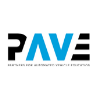Why Koffie is joining the PAVE Campaign
The rollout of autonomous trucking is imminent. And it will need insurtech.
While self-driving can seem like a leap into the unknown, the truth is that many incremental changes and innovations have brought us to the doorstep of autonomy. The semi and fully autonomous truck market is projected to reach $88B by 2027.
That’s why Koffie is joining PAVE Campaign, a coalition of industry, nonprofits and academics with one goal: to inform the public about automated vehicles and their potential. It’s not often that an insurtech enlists in PAVE Campaign, but at Koffie, we know how close we are to the adoption of self-driving long-haul trucking, and we want to help catalyze adoption so that fleets can reap the rewards of increased safety and business efficiencies.
Traditional trucking insurance won’t hold in the autonomous area
When we talk about the future of trucking, we hear a lot about self-driving vehicles. What we don’t often hear is how to evaluate them from a risk and safety standpoint. What happens if a self-driving truck is involved in a crash? How safe do they have to be before they are deployed on public roads and mass produced? The traditional insurance approach places liability on drivers and/or vehicle owners. But autonomous crashes won’t be a result of a driver action, nor the owner of the equipment. Rather, they’ll be a result of hardware or software failures or sensors malfunctioning due to inclement weather or product defects. If there are no drivers, how will liability be assigned? Product liability cases take an incredible amount of time — sometimes five or ten years. Insurance policies need to become broader and more agile to capture the changing exposure of this new mobility landscape. We believe in insurtech to help us eliminate this abstraction.
On our way to educating the public about autonomy, insurers need to prepare for new risk variables. Truck drivers on the roads have questions — not only about liability, but about safety, and their livelihoods. In early adoption, human drivers and automated trucks will likely be on the road at the same time: how do we prepare for this dynamic? At Koffie, we want to answer those questions.
The time is now for education on driverless trucking
We’re joining PAVE at a very exciting time — the convergence of forces from within and outside the trucking and logistics industry is unprecedented. We’re seeing the looming rollout of self-driving long-haul trucking, the dramatic rise of e-commerce since the onset of COVID-19, advances in ADAS, a persistent truck driver shortage, rise of insurance prices, the threat of nuclear verdicts and changes in federal regulations.
While it may seem like the challenge of underwriting for autonomy is unprecedented, there are certainly models for understanding risk where there is no existing historical data — it’s for this reason that aviation insurance is still known as “hull insurance,” a nod to marine vessel insurance from 400 years earlier. Certainly the risks are very different, but risk modeling, rather than fundamental redesign, allows actuaries to make meaningful contributions despite obvious differences.
To those on the fence about joining a coalition like PAVE: trucking facilitates ⅔ of commerce in the US — its impact cannot be ignored. Startups like Koffie are excited to work with incumbents who often have long term relationships in the industry. The challenges we are facing are far greater than any one company can address. Through education about the implications of driverless trucking, we can all embrace change.
In many ways, insurance has provided a framework for the ongoing development of our modern society. Put simply, it allows us to take risks where an outcome is not guaranteed, but the potential upside is huge and thus the risk is worth taking. Insurance has always pushed both safety and innovation forward, and our path toward autonomy will be no different.
